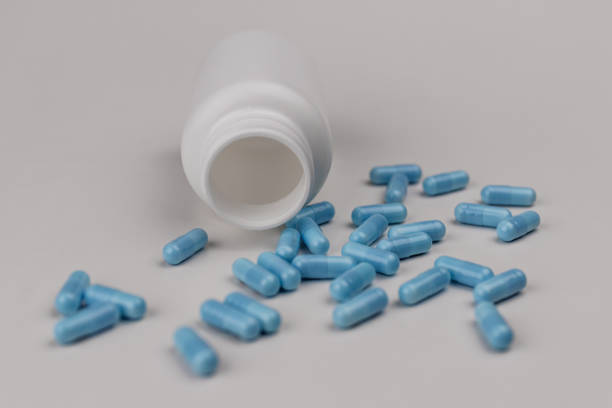When President Bola Tinubu declared that the fight against drug abuse must transcend government efforts and become a national movement, he underscored a truth Nigeria has long ignored: the drug crisis is no longer a fringe problem. It is a mainstream emergency, rooted in poverty, inequality, violence, and social decay.
And unless the country wakes up to this grim reality, the risk of losing a generation to addiction, criminality, and despair is all too pervasive.
The statistics are not just sobering; they are damning. In the past 53 months, the National Drug Law Enforcement Agency (NDLEA) has arrested over 66,000 offenders, seized 11 million kilograms of illicit substances, and secured over 12,000 convictions.
Yet these figures, impressive as they are, only scratch the surface of a deeply entrenched problem. According to the NDLEA chairman, Brigadier-General Buba Marwa (Rtd), Nigeria ranks among the top countries globally for drug abuse prevalence. Fourteen million Nigerians reportedly use drugs, and many of them are young, vulnerable, and dangerously underserved.
This year’s World Drug Day theme, “The Evidence is Clear: Invest in Prevention,” is a moral call to action. If the evidence is clear, why has our collective response remained so lethargic, fragmented, and reactive?
President Tinubu rightly identified drug abuse as a problem with structural roots. It is interwoven with poverty, unemployment, weak parenting, and urban decay. It thrives in environments where hope has been extinguished and opportunity is scarce.
This newspaper believes that tackling it requires more than law enforcement—it demands social transformation. And that transformation must begin within families, communities, schools, religious institutions, and, yes, our consciences.
The NDLEA deserves commendation for stepping up. From its War Against Drug Abuse (WADA) advocacy campaign to establishing 30 treatment and rehabilitation centres, the agency under Marwa has led with vision and urgency. Their work with schools, marketplaces, and community groups, as well as their establishment of a 24/7 psycho-social helpline, reflects an understanding that prevention must be people-centred and culturally embedded.
Yet, as both the World Health Organisation (WHO) and the UN Office on Drugs and Crime have made clear, the scale of our response still lags behind the scale of the problem.
With an estimated 200,000 injecting drug users in Nigeria and only 10,000 treatment slots available annually, the math is tragic. It is worse when it is considered that 10.9 per cent of injecting users are living with HIV, and another 5-6 per cent with hepatitis B and C—silent epidemics piggybacking on the failure to treat addiction as a public health crisis.
There are other issues as well. The healthcare system is woefully under-resourced to deal with addiction. Many states still lack modern, model treatment centres. Community-based rehabilitation is almost non-existent.
Worse still, the stigma attached to drug users drives many away from seeking help, leaving them trapped in cycles of shame and relapse
We must also look inward as a nation. What are the cultural, economic, and political forces enabling drug abuse? How did narcotics become accessible to schoolchildren, street hawkers, and even political thugs? Why are dangerous substances sold openly in motor parks, ghettos, and even upscale neighbourhoods without fear of reprisal? This is not just a policy failure but a failure of national political will.
We call on the federal and state governments to scale up prevention and treatment infrastructure investments. The President’s support for student loans and digital skills programmes is a start. Still, it must be complemented with targeted mental health interventions, school-based drug education, and community-led surveillance.
We also urge the National Assembly to pass legislation mandating every state establish and fund at least one model addiction treatment centre supported by trained mental health professionals. Likewise, every local government should be tasked with running awareness programmes to educate parents and young people about the dangers of drugs.
Faith-based organisations and traditional rulers must not remain silent. Their influence in shaping values and behaviour is unmatched. We need sermons and palace pronouncements that do more than condemn drug abuse—they must offer hope, guidance, and pathways to recovery.
And parents must return to the basics. A generation of children is being raised on screens and silence. More than ever, they need presence, boundaries, and purpose. No anti-drug campaign can succeed without the family unit being restored to its rightful place as the first line of defence.
Above all, we urge a shift in mindset. Drug users are not criminals—they are citizens in crisis. They need help, not handcuffs. They need support, not stigma. A Nigeria that jails the sick while allowing traffickers to walk free is not only unjust—it is self-destructive.
As President Tinubu said, “This is not a fight for government alone.” Indeed, it is a fight for the soul of our nation. If we do not confront this menace with the seriousness it demands, we may win a few battles but lose the war.
The evidence is clear. The time is now. Let this World Drug Day, just marked, be more than a commemoration. Let it be a national reckoning.





